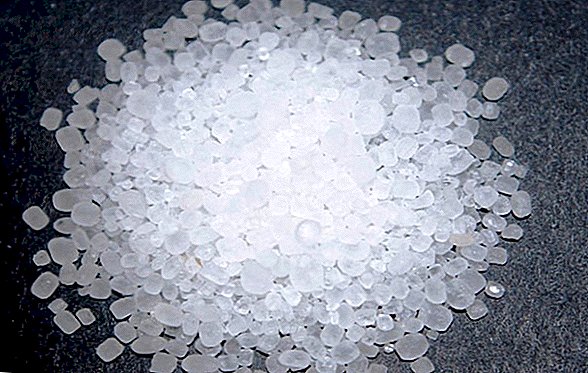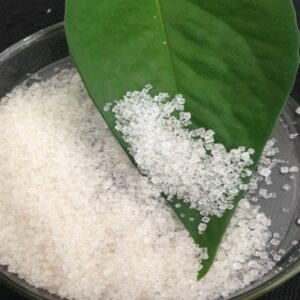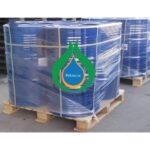Petro Chemical Supplying Company is a global Group based in Turkey which manufactures and provides chemical and raw material in different cases with deep industrial experiences.

[vc_row][vc_column][vc_column_text]
Ammonium sulfate ((NH4)2SO4) is an inorganic salt with a number of commercial different uses. The most same use is as a soil fertilizer since the chemical contains 21% (w/w) nitrogen and 24% (w/w) sulfur. The chemical has also been used in flame retardant chemicals because, as a flame retardant, it increases the combustion temperature of the material, decreases maximum weight loss rates, and causes an increase in the production of residue or char. AMS has been used as a wood preservative, but due to its hygroscopic nature, this use has been largely discontinued because of associated problems with metal fastener corrosion, dimensional instability, and finish failures.
(1) Synthetic manufacture from pure ammonia and concentrated sulfuric acid
(2) As a coke oven by-product,
(3) from ammonia scrubbing of tail gas at sulfuric acid (H2SO4) plants, and
(4) as a by-product of caprolactam ((CH2)5COHN) production,
Typically, ammonium sulfate is manufacture by combining anhydrous ammonia and sulfuric acid:
2NH3+H2SO4→NH42SO4
In the manufacture, a mixture of ammonia gas and water vapor is introduced into a reactor that contains a saturated solution of ammonium sulfate and about 2%–4% (v/v) of free sulfuric acid at 60°C (140°F); the heat of the reaction maintains the desired temperature. Concentrated sulfuric acid is added to keep the solution acidic and to retain its level of free acid. Dry, powdered ammonium sulfate may be formed by spraying sulfuric acid into a reaction chamber filled with ammonia gas. The heat of reaction evaporates all of the water present in the system with the resulting formation of as dry powdery salt.
Ammonium sulfate crystals are formed by circulating the solution through an evaporator where it thickens. A centrifuge separates the crystals from the mother liquor. The crystals contain 1%–2.5% moisture and are dried in a fluidized bed or rotary drum dryer. Dryer exhaust gases are sent to a particulate collection system (e.g., wet scrubber) to control emissions and recover residual product.
Ammonium sulfate also is manufactured from gypsum (CaSO4·2H2O). In this process, finely divided gypsum is added to a solution of ammonium carbonate causing calcium carbonate precipitates as a solid, leaving ammonium sulfate in the solution:
NH42CO3+CaSO4→NH42SO4+CaCO3
Ammonium sulfate, also called diammonium sulfate or sulfuric acid diammonium salt, is a white crystalline solid with no smell. It tastes salty. The compound dissolves easily in water but will not dissolve in alcohol or acetone. It readily absorbs water, so if it’s exposed to moist air, it will “scab” on the damp surfaces. When ammonium sulfate reacts with alkaline substances, it gives off ammonia gas. Finally, ammonium sulfate is a fertilizer that’s sometimes used in making homemade explosives.
Ammonium sulfate (sometimes abbreviated as AS or AMS) has been produced for more than 150 years. Initially, it was made from ammonia released during manufacturing coal gas (used to illuminate cities) or from coal coke used to produce steel. Today, manufacturers make it by reacting sulfuric acid with heated ammonia. To get the crystal size best suited for the application, they control the reaction conditions by screening and drying the particles until achieving the desired size. Some materials are coated with a conditioner to reduce dust and caking.
Byproducts from various industries meet most of the current demand for AMS. For example, the nylon manufacturing process produces ammonium sulfate as a co-product. In another, certain byproducts that contain ammonia or spent sulfuric acid are commonly converted to ammonium sulfate for use in agriculture.
Sulfate ammonium used for
Ammonium sulfate is used most commonly as an artificial fertilizer for alkaline soils. When introduced into damp soil, an ammonium ion is released. This creates a small amount of acid, which lowers the pH balance of the soil. It also contributes nitrogen, which aids in plant growth. It dissolves relatively slowly, which makes it cheaper than some other artificial fertilizers. AMS is also used as an herbicide because it will burn the leaves of plants and either kill them outright or at least weaken them for easy removal.
Other Uses
This compound is used in the production of printed circuit boards. It’s also in flame retardant materials because it lowers the combustion temperature and increases the production of residues or chars. AMS activates yeast, so it helps to get industrially produced bread to rise, and it’s also a general-purpose food additive. Finally, it plays an important role in developing vaccines during the purification process. The DTap vaccine, which protects children from diphtheria, tetanus, and whooping cough, uses for this purpose.
Hazards of Use
AMS is potentially dangerous to both people and the environment, so it requires care in its use. It can cause severe irritation and inflammation of the respiratory tract if inhaled. Eating or drinking ammonium sulfate will cause irritation in the gastrointestinal tract like nausea, vomiting, and diarrhea, although it isn’t toxic unless consumed in large quantities. Contact with the skin or eyes will cause irritation, redness, itching, and pain. It may also be a neurotoxin, meaning it can cause confusion and behavioral changes.

[/vc_column_text][/vc_column][/vc_row][vc_row][vc_column][vc_separator][/vc_column][/vc_row][vc_row][vc_column][/vc_column][/vc_row][vc_row][vc_column][vc_separator][/vc_column][/vc_row]

Removal of sulfate from chlor alkali brine by nano filtration...
Read More
Abstract Background Formic acid (format) is the main reason for...
Read More
Process Advantages of Direct CO2 to Methanol Synthesis Carbon Recycling...
Read MoreWhatsApp us
